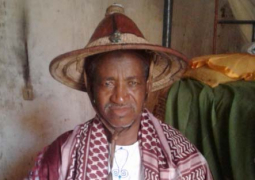Migration is a way for Africans to improve their lives, but most often those who seek greener pastures are faced with significant barriers, particularly across borders, according to the 2009 Human Development Report launched yesterday.
The report, dubbed Overcoming barriers: Human mobility and development, finds that many restrictions and inequalities prevent Africans from moving. Restrictions imposed by the limited opportunities of the low-skilled to move across borders mean that money transfers, or remittances do not tend to flow directly to the poorest families, nor to the poorest countries. However, when given the chance, Africans potentially have the most to gain from seeking opportunities elsewhere.
This, according to the report, is the latest publication in a series of global Human Development Reports, which aim to frame debate on some of the most pressing challenges facing humanity from climate change to human rights.
It is an independent report commissioned by the United Nations Development Programme.
"Migration has a long tradition in
"Internal migration in
This can be seen in cities, such as
The report finds out that the result is likely to lead to rapidly increasing disparities and segmentation of the city.
Those forced to move because of conflict or natural disasters have also suffered severe hardship.
Overcoming barriers also finds that migrants are significantly constrained by the lack of resources to move and prohibitive entry policies. Transaction costs or "paper walls" often limit the ability of Africans to migrate. For instance, checkpoints on local roads, where bribes are levied, are common place in many parts of
As one of the principal regional destinations for migrants,
One in six countries all but three in Africa, the report added, will more than double their populations within the next 40 years, significantly increasing their work force without enough job opportunities. At the same time, many rich countries face a rapidly ageing population with a diminished labour force.
Overcoming barriers argues that
Countries of origin already benefited from emigration in many ways, especially through remittances. In total, remittance flows are more than four times higher than official development aid. Besides remittances, migrant families may benefit in other ways, such as reductions in fertility, higher school enrolment rates and the empowerment of women.
The report observes that the exodus of highly skilled workers, such as doctors, nurses and teachers or 'brain drain' is a major concern. The emigration rate of doctors is more than 40 percent in
The report concludes that countries' attempts to stem this exodus have not worked, and impinge on people's freedom. The long-term solution to such exodus is to strengthen the delivery of services through institutional reforms and better remuneration at home.
According to the report, migration through remittances, the transfer of knowledge and ideas and other benefits, can boost development at home.
"But it is no substitute for accelerated domestically-driven development, instead it urges governments to better integrate mobility into their overall development and poverty reduction strategies.
The core package of policy reform described in the report stresses rights for migrants, ensuring benefits for migrants and destination communities alike, making it easier for people to move within their own countries and mainstreaming migration into national development strategies," it concluded.




